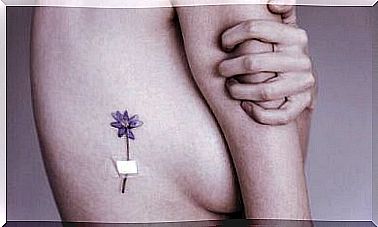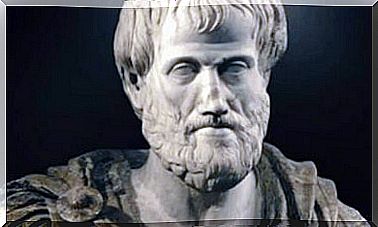The Tea Ceremony: A Rite Full Of Charm
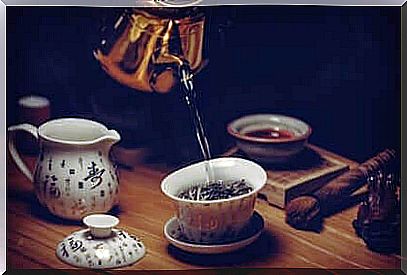
The tea ceremony, Cha no yu or chadō , is an ancient ritual that goes far beyond pouring boiling water over tea. In Japanese culture this practice is also studied in universities.
Through this ritual, in fact, values such as humility, the deep bond that exists between human beings, honesty and elegance are transmitted.
For the Western world, Japanese culture always exudes an aura of charm. We are inevitably attracted to its mysticism, its customs and those rituals that characterize a society based on respect and a sense of collaboration and improvement. One of the oldest and most fascinating customs is that built around the tea ceremony.
We know, for example, that since tea was introduced to Japan in the 9th century by Buddhist monks, its consumption has been associated with a series of ritual practices that both hosts and guests had to follow. Among these were self-knowledge and spiritual connection following the principles of Zen philosophy.
In the 13th century the samurai also made use of this ceremonial in their practices. Only in the 16th century did Sen no Rikyu, the best known historical figure in the spread of tea ceremonies, introduce a new concept, the ichi-go ichi-e .
It was about conveying the importance of living every moment as a precious asset, as a delicate and perfect treasure that will never be repeated. So let’s see what are the philosophical principles and teachings of the tea ceremony.
The four principles of the tea ceremony
The tea ceremony is above all a transformative practice. What does this mean? In his works The Spirit of Japanese Art and The Book of Tea, historian and philosopher Okakura Kakuzō explains that this custom is intended to improve the lives of those who practice it.
This goal is achieved by cultivating values such as discipline, honesty and refinement. For the Japanese, taking care of good manners is synonymous with respect.
Only in this way is it possible to realize that exquisite connection with the other, always expressed through humility. This is all part of the tea ceremony.
The chadō or tea ceremony is based on four basic principles. It is a series of dimensions that start from the Zen philosophy and which must be taken into account in order to carry out this practice adequately. Are the following:
Wa (harmony)
According to Japanese culture, having tea with someone also represents the balance of nature. The harmony that exists in our forests, rivers, mountains and oceans should also be represented during the meeting around a cup of tea.
For this reason, there must always be a positive and respectful interaction between the host and his guests.
That careful connection, filled with affection, peace and kindness, must refer to the harmony we find in the natural world. In this way everything is connected, everything ends up being the same.
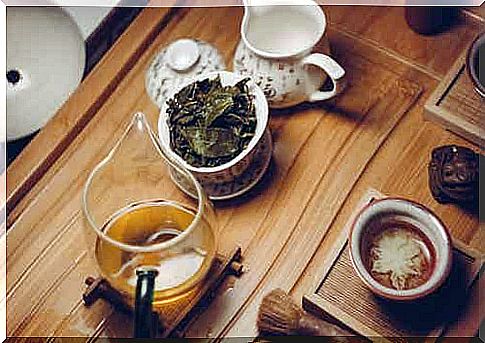
Kei (respect) in the tea ceremony
When a group of people get together to drink tea, there is no hierarchy, status or difference. The tea ceremony promotes respect when everything is flowing.
No one should impose their opinion on others or fall into the excess that comes from pride. Respect must be absolute, with attention to the smallest details.
At the end of the day, everything comes back, as the ritual also satisfies the other principles : that of harmony and that of purity.
You are (purity)
The six within the tea ceremony refers to the need to treat oneself and others with a pure heart. Openness of character, honesty and transparency are virtues that the guest must take care of at all times.
Similarly, the concept of purity in turn implies knowing how to cleanse the house and one’s being, of negativity, resentments and bad energies.
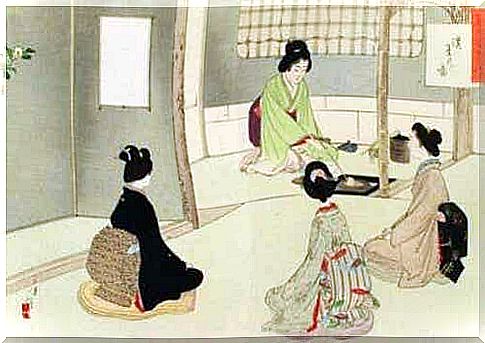
Jaku (quiet)
When the good host manages to master both Kei, Sei and Wa , he reaches the fourth essential level, which is called Jaku or tranquility. At this point it can transcend beyond the ceremony itself.
Only then will it be possible to understand that the philosophy of the tea ceremony must be applied to everyday life.
Having a respectful and honest attitude, taking care of the well-being of others without falling into arrogance, and practicing purity of heart, makes it easier for Japanese to take care of their cultural values.
Conclusions on the tea ceremony
In Japan, Zen philosophy has been regulating the behavior of society since ancient times. Hence, the tea ceremony tries in every way to take care of these pillars while preserving the small universe of this practice.
The ritual built around this ceremony is as vast as it is fascinating. Its formalism, objects, furnishings and even the building in which they are kept ( Sukiya ) are precious stones of a tradition that still survives today. Something that Westerners cannot help but observe with curiosity.
